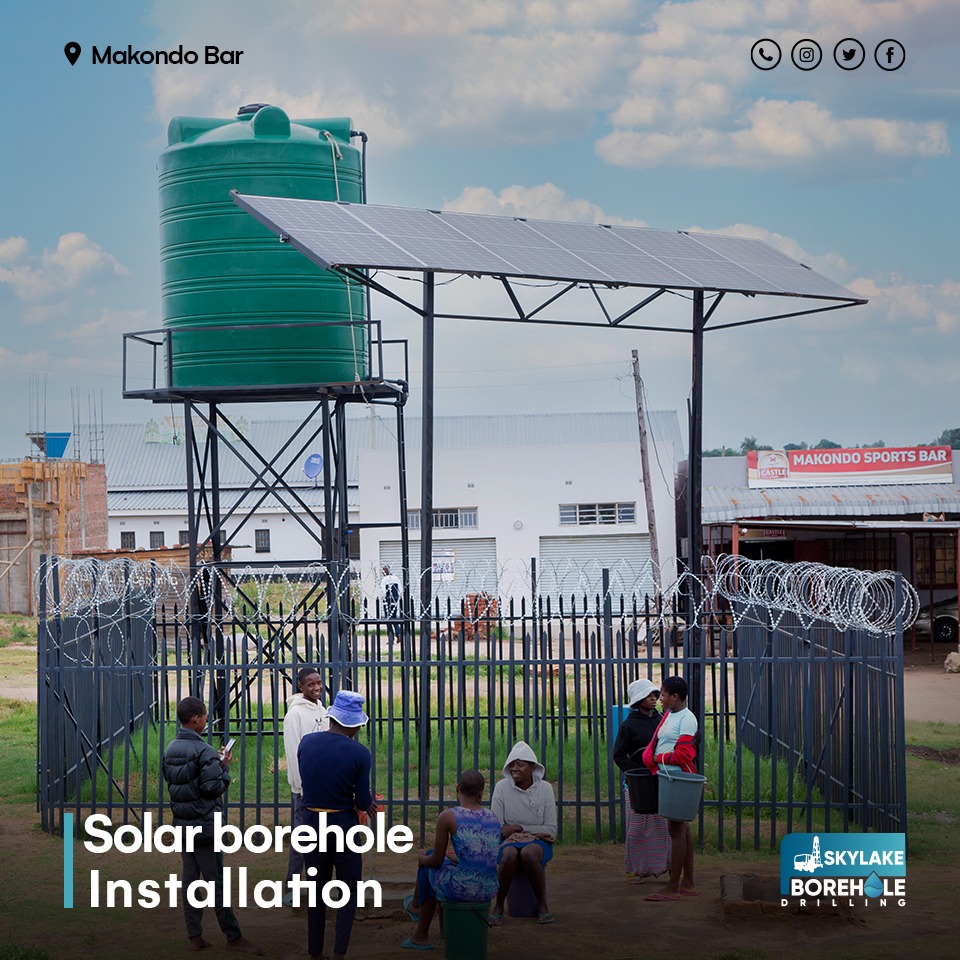
How Drilling a Borehole Can Benefit Your Commercial Property in Zimbabwe
Zimbabwe is facing a severe water crisis that affects millions of people, especially in the capital city of Harare. The city’s water infrastructure is outdated and unable to meet the demand of the growing population. Water shortages, rationing, and cuts have become a daily reality for many residents and businesses, who have to resort to alternative and often unsafe water sources. In this article, we will explore how drilling a borehole on your commercial property can provide you with a reliable and consistent supply of clean water, as well as other benefits for your business and the environment.

A borehole is a narrow shaft drilled into the ground to access groundwater from an aquifer. A borehole can provide you with a reliable and consistent supply of clean water for your business operations, such as irrigation, manufacturing, cleaning, or hospitality. Drilling a borehole on your commercial property can have several benefits for your business and the environment, such as:
- A borehole can reduce your dependence on the city council water supply, which is often erratic, expensive, and contaminated. By having your own water source, you can avoid the inconvenience and frustration of water shortages, rationing, and cuts that affect your business’s productivity and profitability.
- A borehole can save you money on water bills and avoid penalties for excessive water consumption or non-payment. The city council charges high tariffs for water usage and imposes fines for exceeding the allocated quota or failing to pay on time. By using borehole water, you can reduce your water expenses and avoid these charges.
- A borehole can increase the value of your property and attract more customers or tenants who are looking for water security. Water security is a key factor for many businesses and individuals who are looking for commercial properties to buy or rent in Harare. By having a borehole on your property, you can increase its marketability and appeal to potential buyers or renters who value having access to clean and reliable water.
- A borehole can contribute to environmental sustainability by reducing your carbon footprint and preserving groundwater resources. By using borehole water instead of piped water, you can reduce your energy consumption and greenhouse gas emissions associated with pumping, treating, and distributing water from distant sources. Moreover, by drilling a borehole responsibly and following the best practices for groundwater management, you can ensure that you do not overexploit or contaminate the aquifer that supplies your borehole.
The Challenges and Requirements of Drilling a Borehole
Drilling a borehole on your commercial property is not a simple or cheap process. It requires careful planning, professional expertise, legal compliance, and regular maintenance. Some of the challenges or requirements of drilling a borehole are:
- Drilling a borehole requires a professional and reputable drilling company that can offer quality services and equipment at affordable prices. You need to do some research and compare different drilling companies based on their experience, reputation, credentials, equipment, prices, and warranties. You also need to check their references and testimonials from previous clients to ensure that they have delivered satisfactory results.
- Drilling a borehole requires a geological survey and a hydrological test to determine the best location and depth for the borehole. A geological survey involves mapping the underground rock formations and identifying the aquifers that can provide water for your borehole. A hydrological test involves pumping water from the borehole and measuring its flow rate, quality, and sustainability. These tests are essential to ensure that your borehole is feasible, safe, and efficient.
- Drilling a borehole requires a permit from the relevant authorities and compliance with environmental and health regulations. You need to apply for a borehole permit from the Zimbabwe National Water Authority (ZINWA) and pay the required fees. You also need to follow the guidelines and standards set by the Environmental Management Agency (EMA) and the Ministry of Health and Child Care (MOHCC) for borehole drilling, construction, protection, and use. These regulations are meant to protect the environment and public health from the potential impacts of borehole drilling and operation.
- Drilling a borehole requires regular maintenance and repairs to ensure optimal performance and safety of the borehole. You need to monitor your borehole regularly and check for any signs of damage, leakage, or contamination. You also need to service your borehole periodically and replace any worn-out or faulty parts, such as pumps, pipes, valves, filters, or meters. You also need to disinfect your borehole occasionally and test its water quality regularly to ensure that it meets the standards for drinking and domestic use.
Conclusion
Drilling a borehole on your commercial property in Zimbabwe can be a worthwhile investment that can provide you with many benefits for your business and the environment. However, it also involves some challenges and requirements that you need to consider before you decide to drill a borehole. If you are interested in drilling a borehole on your commercial property, you can contact us today for a free consultation and quotation. We are a professional and reputable drilling company that can offer you quality services and equipment at affordable prices. We have years of experience in drilling boreholes for commercial properties in Zimbabwe and we can help you achieve your water security goals. Contact us today and let us help you drill your borehole.
